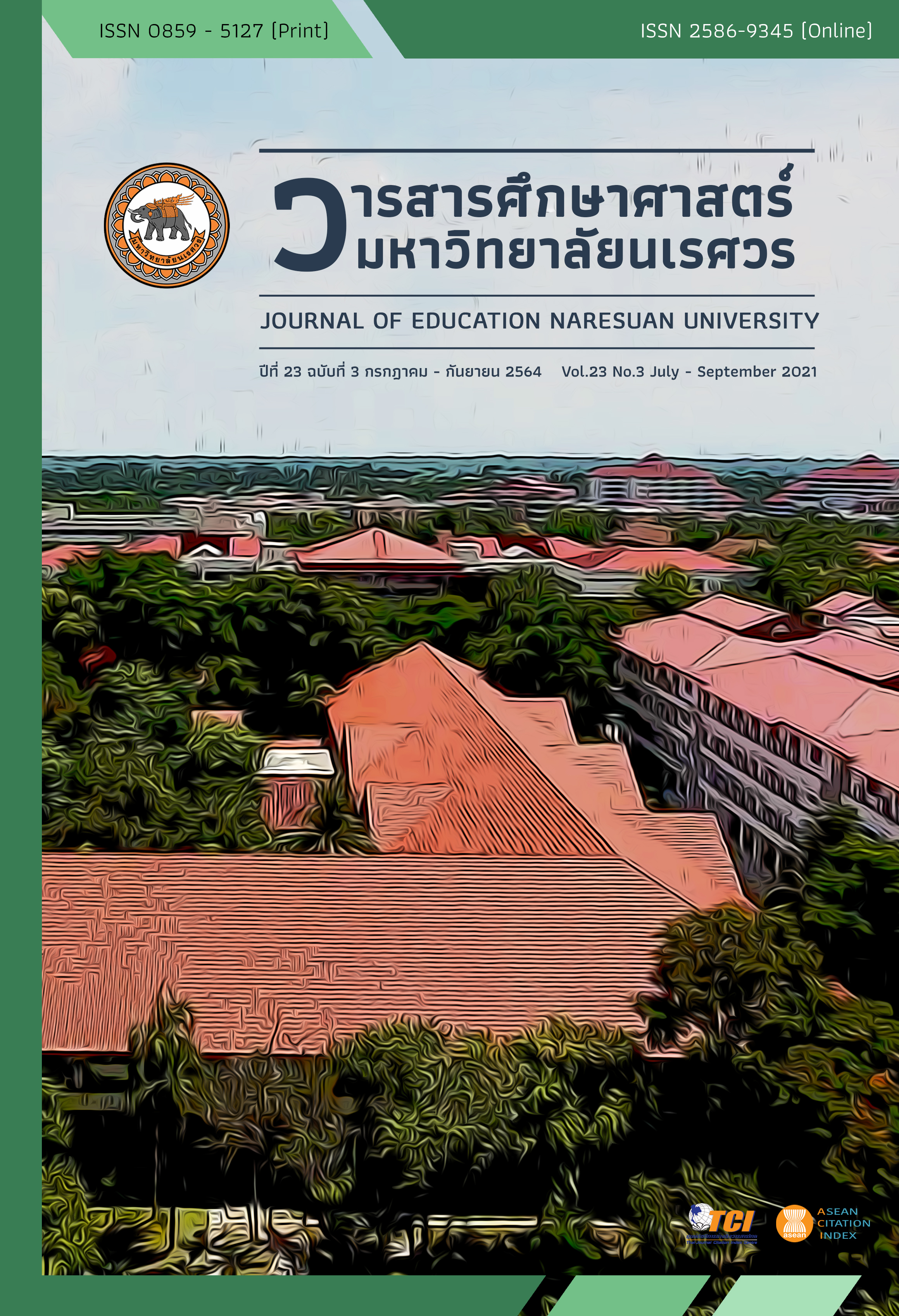THAI UNIVERSITY STUDENTS AND SOCIAL MEDIA: USING SOCIAL MEDIA TO EXPRESS AND LEARN ABOUT POLITICAL AND EDUCATIONAL TOPICS
Main Article Content
Abstract
This study investigates the popularity of social media in relation to learning and power, specifically in the areas of education and politics in Thai university students. This mixed-methods study shows that the majority of the 96 Thai students from Naresuan University surveyed do in fact post, comment, learn, and acquire both knowledge and allegiances based on what they see and read online. Students indicated a variety of social media behaviors and knowledge sharing that is important to consider in how and when students are learning. Descriptive surveys were used to find patterns and semi-structured interviews were utilized to gain a deeper understanding of results. This mixed-method study depicts how Thai students are using social media to discuss and learn about political and education topics.
Article Details
The owner of the article does not copy or violate any of its copyright. If any copyright infringement occurs or prosecution, in any case, the Editorial Board is not involved in all the rights to the owner of the article to be performed.
References
Chadwick, A., & Stromer-Galley, J. (2016). Digital media, power, and democracy in parties and election campaigns: Party decline or party renewal? The International Journal of Press/Politics, 21(3), 283–293. https://doi.org/10.1177/1940161216646731
Ceron, A., Curini, L., Iacus, S. M., & Porro, G. (2014). Every tweet counts? How sentiment analysis of social media can improve our knowledge of citizens’ political preferences with an application to Italy and France. New Media & Society, 16(2), 340-358.
Constine, J. (2016). Facebook climbs to 1.59 billion users and crushes Q4 estimates with $5.8 B revenue. TechCrunch, 1, 27.
Chun, J. W., & Lee, M. J. (2017). When does individuals’ willingness to speak out increase on social media? Perceived social support and perceived power/control. Computers in Human Behavior, 74, 120-129.
Deveney, B. (2005). An investigation into aspects of Thai culture and its impact on Thai students in an international school in Thailand. Journal of Research in International Education, 4(2), 153-171.
Freelon, D., McIlwain, C., & Clark, M. (2018). Quantifying the power and consequences of social media protest. New Media & Society, 20(3), 990-1011.
Haberkorn, T. (2018). In plain sight: Impunity and human rights in Thailand. Madison, Wisconsin: The University of Wisconsin Press.
Leesa-Nguansak, S. (2016). Thai firms lead region for clever use of social media. Retrieved from https://www.bangkokpost.com/tech/977249/thai-firms-lead-region-for-clever-use-of-social-media
Liengpradit, P., Sinthupinyo, S., & Anuntavoranich, P. (2014). Trend of Facebook usage behavior and impacts on the attitudes amongst friends in social network circle of Thai Youths: Case study on college students. International Journal of Social Sciences, 3(2), 68-80.
Long, N. (2001). Development sociology: Actor perspectives. London: Routledge.
Magpanthong, C., & McDaniel, D. (2015). Online expression of emotions and personal viewpoints: A case study of Facebook usage among Thai and US students. BU Academic Review, 14(2), 83-99.
Ngampornchai, A., & Adams, J. (2016). Students’ acceptance and readiness for E-learning in Northeastern Thailand. International Journal of Educational Technology in Higher Education, 13(1), 34. https://doi.org/10.1186/s41239-016-0034-x
Schaffar, W. (2016). New social media and politics in Thailand: The emergence of fascist vigilante groups on Facebook. Austrian Journal of South-East Asian Studies, 9(2), 215-234.
Sherman, L. E., Payton, A. A., Hernandez, L. M., Greenfield, P. M., & Dapretto, M. (2016). The power of the like in adolescence: Effects of peer influence on neural and behavioral responses to social media. Psychological Science, 27(7), 1027-1035.
Thomas, D. (2018). Motivational beliefs, social media addiction, and interpersonal communication skill among international students in Thailand. International Forum Journal, 21(2), 153-169.
Valkenburg, P. M., & Peter, J. (2013). The differential susceptibility to media effects model. Journal of Communication, 63(2), 221-243.
Valkenburg, P. M., Peter, J., & Walther, J. B. (2016). Media effects: Theory and research. Annual Review of Psychology, 67, 315-338.
White, A. (2018). Students’ perceptions of using a social networking application as a learning management system. SSRN Electronic Journal. DOI:10.2139/ssrn.3282993
World Report 2019: Thailand/Human Right. (2019). Thailand events of 2018. Retrieved from www.hrw.org


